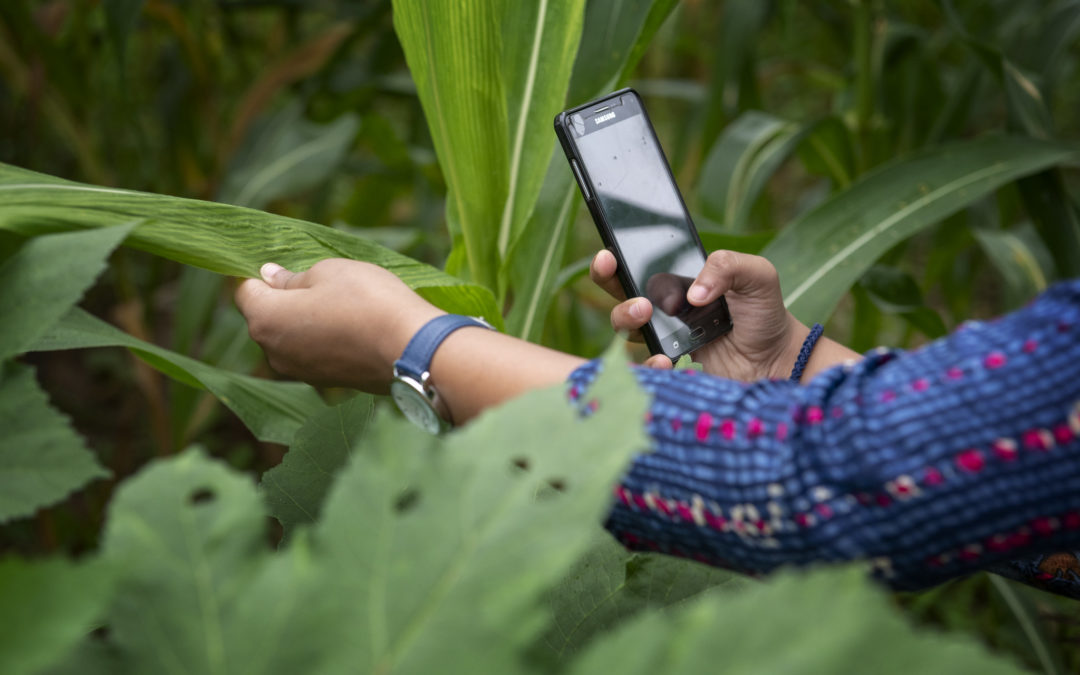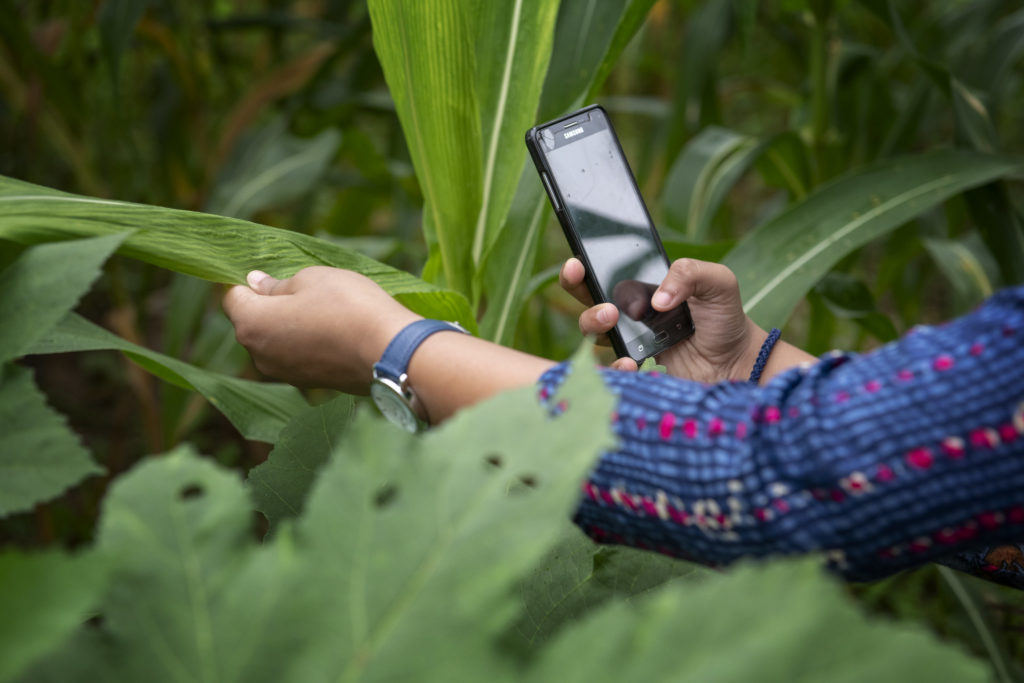Timely information at every stage of the crop cycle for farmers in Nepal
This blog is a submission to the Community of Practice on Data-Driven Agronomy’s blog competition on digital extension—an opportunity for those working in the digital extension in agriculture field to share their experiences with their technologies, business models, key challenges, and major bottlenecks, as well as how they solved such challenges, when creating and implementing innovative solutions.
Smart Krishi Nepal is an ICT-driven company established in 2013 with a vision to be farmer’s friend by sharing timely information on quality seeds, good practices, technologies, services, and skills for smart farming. We are working on a wide range of farming in order to serve a variety of farmers and bring higher profitability and productivity through sustainable practices.
When we founded the company, internet was costly and mobile applications were new in Nepal. Today, we are Nepal’s biggest ICT-driven company with a large number of followers and users. We reach farmers and agri-entrepreneurs with user-friendly mobile applications, web applications, and social media channels.
Now, as data connections and smartphones are increasing available to farmers, they can get actionable, relevant, and decision-critical content in a significantly more engaging and powerful manner.
Through mobile apps, rural farmers can get information at every stage of the crop cycle: pre-sowing to harvest with information on quality seeds, market price, weather, local and regional agri-news, and crop advisories from local extension agencies. Our app has already been used by more than 270,000 farmers across Nepal and abroad as well; 30% of app downloads are from outside the country.
Farmers abroad use the app to get information about the latest developments and opportunities in agriculture in Nepal so they can better plan their return. Content is in local language, and we are focusing on co-creation of content from our users in order to get the most updated information from across the country.
We use social media platforms to spread agri-information as well as stories from successful farmers to inspire more young people in the agriculture sector. Our social media channels have more than 700k followers with 1.5 million post reach every week.
We act as a digital platform for marketing of agri-inputs and service providers, posting about the benefits of agri-technology benefits and information taking charge from the company. As a revenue model, we charge fees for conducting skill and knowledge training on agriculture and livestock farming for exiting farmers, new people, returning migrant workers, and youths. We also support on making detailed project and business plans for promoting and creating agri-entrepreneurs.
We are working and collaborating with several national stakeholders for empowering farmers and raising awareness about the agriculture movement in Nepal.
What are the biggest challenges you have faced? How did you overcome them?
We started this initiative from scratch. When we began, there was little trust in the idea that farmers would adopt digital solutions because of stereotypes about farmers lacking education in Nepal. However, due to the growing number of mobile phone users, it became easier for the company to connect with farmers through Google Play and Facebook. With perseverance and patience, we were able to make national news headlines.
For the first two years, it was very hard for us to attract downloads. However, we were able to leverage the power of social media and have developed the company thus far without any large prize money or government support.Our goal is to make this organization one of rising startups in Southeast Asia.
We see resistance to the adoption of new technologies among farmers as the main hindrance to reach grassroot level and expand user base. To tackle this, we have partnered with local NGOs and government projects to provide training for farmers at the grassroot level. We provide them extension services, and, in return, we get genuine farmers as app users. These partnerships help local projects deliver their agri-messages through our app and increase the reach of government notices among farmers.
Sustainability is a main issue for extension-based agencies across the world. In order to make our company more sustainable, we regularly update our business model and are adding innovative services. We began this platform as just an extension service, but we now additionally provide market linkage and commercial trainings.
We focus on customer satisfaction and care. We develop our services and information delivery methods based on market and customer feedback. Our users are our biggest strength and will help us attract investment and revenue, more users, and other resources as we continue to develop.
In your opinion, what is the main opportunity for digital extension services? What recommendations would you make in order to realize this opportunity?
We know that the ICT world is growing rapidly and becoming of the basic needs of human civilization. Digital extension services have a great opportunity in Nepal because of the governmental collaboration with the agricultural sector, well-developed infrastructure, market potential, and rising global demand for food from countries which, like Nepal, have immense water resources and diverse climates. By providing farmers access to the right information, technology, quality inputs, skills, and correct market values, we can tap this opportunity.
***
Photo: C. de Bode / CGIAR. Pratima Baral, researcher at the International Maize and Wheat Improvement Center (CIMMYT) uses an in-field app.
Click here to view the full list of articles competing in the digital extension services blog competition.
January 20, 2020
Anil Regmi
Founder
Smart Krishi Nepal
Latest news






